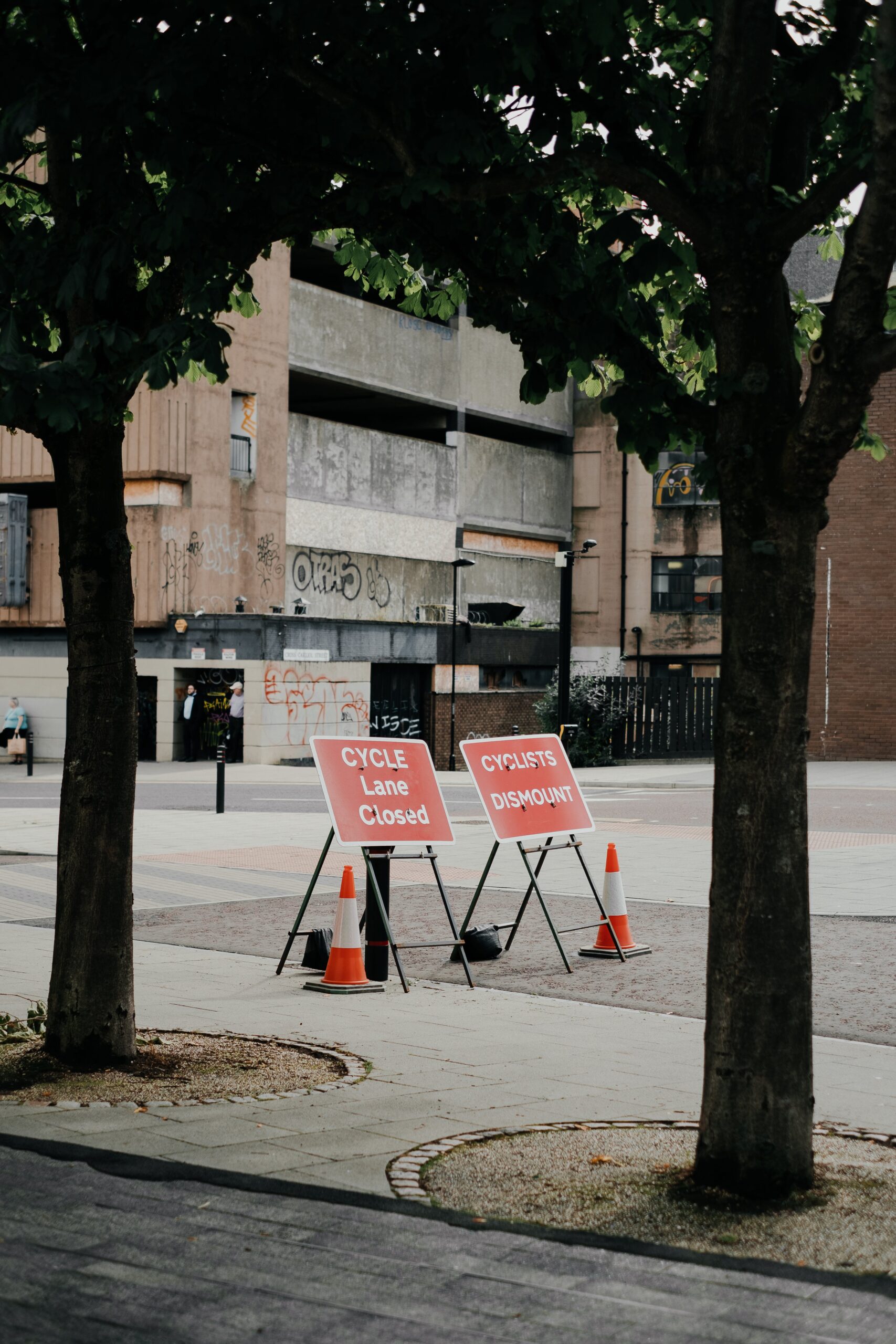If you’re considering starting a cannabis business in Montana, it’s important to understand and navigate the stringent zoning regulations that come with it. The legalization of recreational marijuana in this state has opened up new opportunities, but also comes with its fair share of challenges. From determining suitable locations to complying with local zoning ordinances, this article will provide valuable insights and tips on how to successfully navigate the complex zoning regulations for your cannabis business in Montana. So, grab your notebook and let’s dive in!
Understanding Zoning Regulations in Montana
If you’re looking to start a cannabis business in Montana, understanding zoning regulations is crucial. Zoning districts play a significant role in determining where certain types of businesses can operate and how they must comply with various restrictions and requirements. To navigate these regulations successfully, it’s essential to have a clear understanding of the different zoning districts, the specific restrictions and requirements that apply, and any special considerations for cannabis businesses.
Types of zoning districts
Zoning districts in Montana are designated areas that determine land use regulations and restrictions. Common types of zoning districts include residential, commercial, industrial, agricultural, and mixed-use. Each district has its own set of rules regarding what types of activities are permitted or prohibited. For cannabis businesses, it’s important to identify the zoning districts that allow for the type of operation you intend to run.
Zoning restrictions and requirements
Once you’ve identified the suitable zoning districts for your cannabis business, it’s crucial to familiarize yourself with the specific restrictions and requirements that apply. These may include setbacks, which determine how far a business must be from property lines or other buildings, as well as height and density limits. Additionally, there may be specific regulations regarding parking, lighting, signage, and noise levels. Understanding these restrictions and ensuring compliance is essential to avoid potential penalties or legal issues.
Special considerations for cannabis businesses
Cannabis businesses have unique considerations that must be taken into account when navigating zoning regulations. In Montana, cannabis businesses are subject to additional licensing requirements and restrictions imposed by state and local authorities. It’s important to research and understand these regulations in order to meet all necessary criteria for licensing and operation. Additionally, cannabis businesses may face public perception and stigma, which could impact zoning decisions or limitations. Being aware of these considerations can help you address potential challenges as you navigate the zoning process.
Identifying Suitable Zoning Districts
To establish your cannabis business in Montana, you need to identify the zoning districts that allow for the type of operation you intend to run.
Determining allowed land uses
Start by researching the zoning code or land use regulations of the specific jurisdiction where you plan to operate. These documents will outline the allowed land uses for each zoning district. Look for the districts that permit cannabis-related businesses such as cultivation, processing, or retail. Identifying suitable districts will narrow down your search for a location that meets both your business needs and regulatory requirements.
Researching local zoning ordinances
In addition to understanding the allowed land uses, it’s important to familiarize yourself with the local zoning ordinances in your target locations. These ordinances may include specific requirements or restrictions that go beyond the state-level regulations. For example, some municipalities may have buffer zones around sensitive areas like schools, parks, or residential neighborhoods. By researching these local ordinances, you can ensure that you choose a location that complies with all relevant regulations.
Working with a professional consultant
Navigating zoning regulations can be complex, especially for cannabis businesses with unique requirements. Consider working with a professional zoning consultant or land use attorney who is knowledgeable about the local regulations and can guide you through the process. They can help you identify suitable zoning districts, understand the specific requirements, and ensure compliance with all applicable regulations. Their expertise can save you time and minimize potential complications during the zoning process.
Navigating conditional use permits
In some cases, cannabis businesses may need to apply for a conditional use permit (CUP) in order to operate in a particular zoning district. A CUP is a special permit that allows for land use not typically permitted by right. Each jurisdiction has its own process for obtaining a CUP, which often involves public hearings and demonstrating how the proposed use will not adversely affect the surrounding area. If a CUP is required, it’s important to thoroughly understand the process and requirements, as well as engage with the community and address any concerns that may arise.

Complying with Distance Requirements
Montana’s zoning regulations often include distance requirements, also known as buffer zones, which define the minimum distance between certain businesses and sensitive land uses. These requirements aim to protect areas such as schools, churches, residential neighborhoods, and other places where the presence of a cannabis business may be perceived as undesirable.
Understanding buffer zones
Buffer zones are specific distances that a cannabis business must maintain from sensitive land uses. These distances can vary depending on the jurisdiction and the type of sensitive use. For example, there may be a requirement to maintain a 1,000-foot buffer zone around schools, while the buffer zone for residential areas may be 500 feet. Understanding these buffer zones is essential to ensure compliance and avoid potential conflicts or penalties.
Identifying sensitive land uses
To comply with distance requirements, you must be able to identify and map out the sensitive land uses in the vicinity of your desired location. These may include schools, parks, churches, daycare centers, or other areas that are considered sensitive by the local regulations. Researching local zoning maps and other resources can help you identify these sensitive land uses and determine if your intended location meets the distance requirements.
Calculating distance requirements
Once you have identified the sensitive land uses nearby, you can calculate the required distance between your cannabis business and these uses. This distance is usually measured in a straight line or in a pedestrian-friendly path. It’s important to accurately measure and document these distances to demonstrate compliance with the relevant regulations. If your intended location does not meet the distance requirements, you may need to consider alternative locations or explore the possibility of obtaining a variance or special permit.
Engaging with Local Authorities
Engaging with local authorities is an essential part of navigating zoning regulations for a cannabis business in Montana. Building positive relationships and open lines of communication with local officials can help streamline the process and ensure compliance with all necessary permits and licenses.
Attending public meetings
One way to engage with local authorities is by attending public meetings related to zoning or cannabis regulations. These meetings provide an opportunity to learn about any upcoming changes or new developments in the regulations, as well as to voice your concerns or ask questions. By actively participating, you can stay informed and establish connections with key decision-makers who can provide guidance and support throughout the zoning process.
Working with local planning departments
The local planning department is a valuable resource for cannabis businesses navigating zoning regulations. They can provide information about the specific requirements, processes, and documentation needed to obtain the necessary permits and licenses. Building a cooperative relationship with the planning department can help ensure that your business meets all the necessary criteria and is in compliance with the local zoning regulations.
Obtaining necessary permits and licenses
Once you have identified a suitable location and have met all the zoning requirements, you will need to obtain the necessary permits and licenses to operate your cannabis business legally. The exact permits and licenses required may vary depending on the type of operation (cultivation, processing, or retail) and the specific jurisdiction. It’s crucial to research and understand the requirements and application processes for each permit or license and ensure that you submit all the necessary paperwork accurately and on time.

Considerations for Retail Cannabis Businesses
If you are planning to open a retail cannabis business in Montana, there are additional considerations to keep in mind when navigating zoning regulations.
Finding suitable commercial zones
When selecting a location for a retail cannabis business, it’s important to identify suitable commercial zones that permit this type of activity. Commercial zones typically allow for retail establishments and businesses that cater to public consumers. Research the specific zoning regulations in your target areas to ensure that you choose a location that meets the land use requirements for a retail cannabis business.
Understanding signage regulations
Signage plays a crucial role in attracting customers and promoting your retail cannabis business. However, it’s important to understand the signage regulations imposed by both the zoning regulations and the local municipality. These regulations may dictate the size, location, content, and illumination of your signs. By understanding and complying with these regulations, you can ensure that your signage is effective while also meeting all necessary legal requirements.
Parking and traffic considerations
Operating a retail cannabis business requires careful consideration of parking and traffic flow. It’s important to select a location that provides sufficient parking spaces for customers while adhering to the local zoning regulations. Additionally, you may need to consider the impact of increased traffic on the surrounding area and address any concerns that may arise from local residents or businesses. By proactively planning for parking and traffic considerations, you can minimize potential conflicts and ensure a smooth operation for your retail cannabis business.
Navigating Zoning for Cannabis Cultivation
For those looking to start a cannabis cultivation business in Montana, navigating the zoning regulations is crucial to finding a suitable location.
Researching agricultural and industrial zones
Cannabis cultivation operations often require specific zoning districts, such as agricultural or industrial zones. These districts typically allow for commercial farming or industrial activities. Research the zoning regulations in your target areas to identify suitable zones for cannabis cultivation. Additionally, understand any specific requirements or restrictions that may apply, such as water usage, outdoor cultivation, or the use of greenhouses or other structures.
Complying with security requirements
Cannabis cultivation businesses are subject to strict security requirements to prevent unauthorized access and theft of cannabis plants. These requirements may include installing security cameras, alarms, perimeter fencing, and secure storage areas. Familiarize yourself with the security requirements outlined by your local jurisdiction and ensure that your cultivation facility meets all necessary criteria to operate legally and securely.
Addressing environmental concerns
Cannabis cultivation can have environmental impacts related to water usage, pesticide or fertilizer application, and waste management. It’s essential to address these concerns and comply with any environmental regulations that may apply. Understand the water usage regulations, implement sustainable cultivation practices, and properly manage and dispose of waste to minimize environmental impacts and ensure compliance with all applicable regulations.

Zoning for Cannabis Processing Facilities
For those interested in starting a cannabis processing facility in Montana, understanding the zoning requirements is essential.
Identifying appropriate industrial zones
Cannabis processing facilities often require zoning districts that permit industrial activities. These zones are typically designated for manufacturing, processing, or other industrial uses. Identify the appropriate industrial zones in your target areas and thoroughly research the specific zoning regulations and requirements for cannabis processing facilities. Ensure that the chosen location complies with all applicable zoning regulations and land use requirements.
Meeting health and safety regulations
Cannabis processing facilities are subject to stringent health and safety regulations to ensure a safe working environment and the production of high-quality cannabis products. These regulations may cover ventilation, equipment safety, hazardous material handling, and employee training. It’s crucial to understand and comply with these regulations to protect employees’ health and safety and meet all necessary legal requirements. Regular inspections and ongoing safety training can help maintain compliance and create a positive working environment.
Considering wastewater disposal
Cannabis processing facilities often generate wastewater that needs to be properly managed and disposed of. Wastewater from the processing operations can contain contaminants that need to be treated before being discharged into the sewer system or released into the environment. Understand the local regulations regarding wastewater disposal and develop appropriate treatment and management plans to ensure compliance. Consulting with experts in wastewater management can help you navigate these requirements and implement effective solutions.
Dealing with Zoning Variances and Appeals
In certain situations, a cannabis business may need to seek a variance or appeal to overcome specific zoning regulations that pose challenges to their proposed operation.
Understanding the variance process
A variance is an exception or deviation from the existing zoning regulations. If your proposed cannabis business does not fully comply with the zoning requirements, you may need to apply for a variance from the local zoning board. The variance process typically involves demonstrating how your proposal meets the intent of the zoning regulations and does not create negative impacts on the surrounding area. Understanding the variance process and the requirements set by the local jurisdiction is crucial to navigating this potentially complex procedure.
Hiring legal representation
Navigating the variance or appeal process can be challenging, especially when representing yourself. In such cases, it’s beneficial to consider hiring legal representation, such as a land use attorney, who specializes in working with cannabis businesses. They can guide you through the process, help you prepare a strong case, and represent your interests before the zoning board or other applicable entities. Their expertise and knowledge of the local regulations can greatly enhance your chances of obtaining a variance or successfully appealing a zoning decision.
Preparing a comprehensive case
To increase the chances of obtaining a variance or succeeding in an appeal, it’s essential to prepare a comprehensive case that clearly demonstrates why your proposed cannabis business should be granted an exception. This may include gathering supporting evidence, conducting impact studies, and addressing any concerns raised by the zoning board or the surrounding community. By thoroughly presenting your case with supporting data and a well-reasoned argument, you can make a compelling case for why the proposed variance or appeal is justified.

Navigating Tribal Lands Regulations
Montana is home to various tribal lands, each with its own regulations and jurisdictional complexities. If you are planning to establish a cannabis business on tribal land, it’s important to navigate the unique regulations associated with these areas.
Consulting with tribal authorities
When considering a cannabis business on tribal lands, consult with tribal authorities to understand their specific regulations and requirements. Each tribe has its own governing body and laws that dictate land use, business operations, and licensing. Building a relationship with tribal authorities and engaging in open dialogue will help you navigate the regulations in a respectful and compliant manner.
Understanding jurisdictional complexities
Tribal lands in Montana can have jurisdictional complexities when it comes to zoning regulations. Depending on the location and the specific tribe, state and tribal regulations may overlap or have different requirements. It’s essential to thoroughly research and understand the jurisdictional complexities to ensure compliance with both tribal and state regulations. Consulting with legal experts who specialize in tribal law can provide valuable guidance and ensure that you establish your cannabis business in a manner that respects all applicable regulations.
Navigating tribal zoning ordinances
Each tribe may have its own zoning ordinances that dictate land use within their jurisdiction. These ordinances can vary significantly from state or local regulations. It’s crucial to familiarize yourself with the specific tribal zoning ordinances and follow them accordingly. This may include understanding permitted land uses, any distance or buffer requirements, and the process for obtaining necessary permits and licenses. Engaging with tribal authorities and seeking their guidance will help navigate these unique regulations and ensure compliance.
Ensuring Compliance with State and Federal Laws
In addition to understanding and complying with local zoning regulations, it’s essential to ensure compliance with both state and federal laws governing cannabis businesses in Montana.
Understanding state regulations
Montana has its own regulations and licensing requirements for cannabis businesses. These regulations cover various aspects, including licensing, taxation, security, testing, and packaging. It’s essential to thoroughly understand and comply with these state-level regulations to obtain the necessary licenses and operate legally. Researching and staying up to date with any changes or updates to the state regulations is crucial to maintain compliance throughout your cannabis business’s operation.
Complying with federal guidelines
Cannabis remains illegal at the federal level in the United States, despite the legalization of cannabis for medical or recreational use in many states, including Montana. It’s important to understand the federal guidelines and restrictions that apply to cannabis businesses. This includes federal laws related to taxation, banking, interstate commerce, and drug enforcement. Ensuring compliance with these guidelines is necessary to avoid potential federal legal consequences or other complications that may arise.
Seeking legal counsel
Navigating the complex landscape of state and federal laws can be challenging, especially for cannabis businesses. It’s highly recommended to seek legal counsel from an attorney or law firm experienced in cannabis law. They can provide guidance on state and federal compliance, help you understand and navigate the various regulations, ensure that you obtain the necessary licenses and permits, and minimize the risk of legal issues. Working with legal experts specializing in cannabis law will give you peace of mind and help you operate your cannabis business within the boundaries of the law.
In conclusion, navigating zoning regulations for a cannabis business in Montana requires thorough research, understanding of local, state, and federal laws, and engaging with the appropriate authorities. Identifying suitable zoning districts, complying with distance requirements, engaging with local authorities, considering specific requirements for different types of cannabis businesses, navigating variances and appeals when needed, understanding tribal lands regulations, and ensuring compliance with state and federal laws are all critical steps in successfully establishing and operating a cannabis business in Montana. With careful planning, professional guidance, and a commitment to compliance, you can navigate the zoning regulations and establish a successful cannabis business in Montana.

